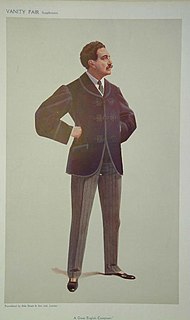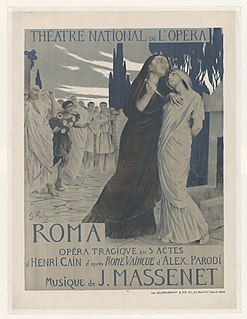 W
WL'Aiglon is an opera in five acts composed by Arthur Honegger and Jacques Ibert. Honegger composed acts 2, 3, and 4, with Ibert composing acts 1 and 5. A 2016 reviewer described it as "a singular piece of work" with its "blend of operetta, divertissement, conversation piece, historical pageant and, in the disturbingly powerful fourth act set on the Napoleonic battlefield at Wagram, phantasmagoria peopled with living figures onstage and dead voices off".
 W
WAmadis is an opera in three acts with prologue by Jules Massenet to a French libretto by Jules Claretie based on the Spanish knight-errantry romance Amadis de Gaula, originally of Portuguese origin, by Garci Rodríguez de Montalvo.
 W
WAmica is an opera in two acts by Pietro Mascagni, originally composed to a libretto by Paul Bérel. The only opera by Mascagni with a French libretto, it was an immediate success with both the audience and the critics on its opening night at the Théâtre du Casino in Monte-Carlo on 16 March 1905. Mascagni himself conducted the performance. The opera had its Italian premiere on 13 May 1905 at the Teatro Costanzi in Rome.
 W
WBéatrice is a légende lyrique (opera) in four acts of 1914, with music by André Messager and a French libretto by Caillavet and Flers, after the short story La légende de Soeur Béatrix (1837) by Nodier.
 W
WChérubin is an opera in three acts by Jules Massenet to a French libretto by Francis de Croisset and Henri Cain after de Croisset's play of the same name. It was first performed at the Opéra de Monte-Carlo on 14 February 1905, with Mary Garden in the title role.
 W
WCléopâtre is an opera in four acts by Jules Massenet to a French libretto by Louis Payen. It was first performed at the Opéra de Monte-Carlo on 23 February 1914, nearly two years after Massenet's death.
 W
WDéjanire is an opera in 4 acts composed by Camille Saint-Saëns to a libretto in French by Louis Gallet and Camille Saint-Saëns. The last of Saint-Saëns' operas, it premiered on 14 March 1911 at the Théâtre de Monte-Carlo. One of the opera's central characters, Hercule (Hercules), had been the subject of two earlier symphonic poems by Saint-Saëns – Le Rouet d'Omphale (1872) and La Jeunesse d'Hercule (1877). The story is based on The Trachiniae by Sophocles.
 W
WDon Procopio is a two-act opera buffa by Georges Bizet with an Italian libretto completed in 1859, and first performed in 1906.
 W
WDon Quichotte is an opera in five acts by Jules Massenet to a French libretto by Henri Caïn. It was first performed on 19 February 1910 at the Opéra de Monte-Carlo.
 W
WL'enfant et les sortilèges: Fantaisie lyrique en deux parties is an opera in one act, with music by Maurice Ravel to a libretto by Colette. It is Ravel's second opera, his first being L'heure espagnole. Written from 1917 to 1925, L'enfant et les sortilèges was first performed in Monte Carlo in 1925 conducted by Victor de Sabata.
 W
WHélène is a poème lyrique or opera in one act by composer Camille Saint-Saëns. It is the first opera for which Saint-Saëns wrote his own French libretto, which is based on the classic story of Helen of Troy and Paris from Greek mythology. The opera premiered at the Opéra de Monte-Carlo in Monaco on 18 February 1904. Moderately successful, the opera enjoyed a handful of revivals up through 1919, after which it fell out of the performance repertoire. The work was resurrected in 2008 for its world premiere recording by the Australian music label Melba.
 W
WHulda is an opera by César Franck to a French libretto by Charles Grandmougin. It is set in 11th-century Norway, and is based on the play Lame Hulda (1858) by Norwegian writer Bjørnstjerne Bjørnson. The complete opera contains a prologue, three acts and an epilogue. It was composed between 1879 and 1885.
 W
WLa jacquerie is a four-act opera commenced by Édouard Lalo in 1889 to a libretto by Édouard Blau and Simone Arnaud, based on the 1828 play of the same name by Prosper Mérimée. The opera was unfinished when Lalo died in 1892, and it was completed by Arthur Coquard. The first performance was at the Opéra de Monte-Carlo on 9 March 1895.
 W
WLe jongleur de Notre-Dame is a three-act opera by Jules Massenet to a French libretto by Maurice Léna. It was first performed at the Opéra Garnier in Monte Carlo on 18 February 1902.
 W
WMessaline (Messalina) is an operatic tragédie lyrique in four acts by Isidore de Lara. The librettists were Paul Armand Silvestre and Eugène Morand.
 W
WI Mori di Valenza is an opera in four acts composed by Amilcare Ponchielli to a libretto by Antonio Ghislanzoni. Ponchielli began composing the work in 1874, but at the time of his death in 1886, only the piano score for the first three acts and part of the fourth had been completed. The opera was later revised by Ponchielli's son Annibale and the orchestration and fourth act were completed by Arturo Cadore. It premiered on 17 March 1914 at the Théâtre du Casino in Monaco and ran for three performances.
 W
WPénélope is an opera in three acts by the French composer Gabriel Fauré. The libretto, by René Fauchois is based on Homer's Odyssey. It was first performed at the Salle Garnier, Monte Carlo on 4 March 1913. The piece is dedicated to Camille Saint-Saëns.
 W
WRoma is an opera in five acts by Jules Massenet to a French libretto by Henri Cain based on the play Rome vaincue by Alexandre Parodi. It was first performed at the Opéra de Monte Carlo on 17 February 1912.
 W
WLa rondine is an opera in three acts by Giacomo Puccini to an Italian libretto by Giuseppe Adami, based on a libretto by Alfred Maria Willner and Heinz Reichert. It was first performed at the Grand Théâtre de Monte Carlo in Monte Carlo on 27 March 1917.
 W
WThérèse is an opera in two acts by Jules Massenet to a French libretto by Jules Claretie. While Thérèse remains among Massenet's lesser-known works, the piece has spawned a number of revivals and recordings.